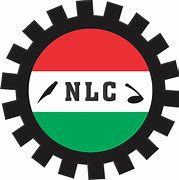By Adeyemi Adekunle
Nigeria Labour Congress (NLC) and the Trade Union Congress (TUC) commences a one-week warning strike. The strike—which affects Nasarawa, Kaduna, Ebonyi states, and the Federal Capital Territory (FCT)—is a direct response to the delayed implementation of the newly mandated N70,000 minimum wage, leaving thousands of workers dissatisfied and protesting across the nation.
The protests erupted after the federal government enacted the National Minimum Wage Bill in July 2024, which sought to provide a living wage for employees across states.
However, various state governments have struggled to adopt this crucial legislation, and many workers now find themselves caught in a web of unfulfilled promises. Frustration has been intense, especially among FCT teachers, who expressed their ire over local area councils’ non-compliance.
As the protests unfolded, the situation became critical in Kaduna State, where employees halted operations in various ministries and agencies.
Despite the Kaduna State government’s claims of a gradual implementation starting in October, the exclusion of consequential adjustments has led to further discontent among workers.
This feeling of betrayal is mirrored in the sentiments expressed by labor leaders, who have criticized state officials for their lack of action.
In Ebonyi State, the protest has seen Governor Francis Nwifuru take an aggressive stance. Nwifuru issued a 72-hour ultimatum for striking workers to return to their jobs or face dismissal. Ironically, the governor announced a N75,000 minimum wage earlier, but workers have dismissed it as merely an unfulfilled promise that has only added fuel to the fire. A situation which has prompts union leaders to push back, calling the governor’s ultimatum “irresponsible” and highlighting a growing disconnect between state leadership and the workers’ reality.
Benson Upah, the spokesperson for the NLC, reported that the first day of the warning strike was met with widespread support across all affected states. He stressed that the issues facing workers are systemic and require immediate attention beyond mere government declarations.
“The governor is isolated in his stance,” Upah said, underscoring the solidarity displayed by workers advocating for their rights and better wages.
The protests has drawn attention to the broader question of economic equity in Nigeria, especially as global inflation continues to impact daily life.
Many are angry that, while the central government is making strides by implementing the new wage, state authorities appear to be dragging their feet, leaving low-wage earners in precarious situations. The disparity in wage compliance calls into question the autonomy that states have over their workforce policies and the responsibility they hold to their citizens.
As the strike continues, hope remains that it could serve as a wake-up call for policymakers.
States facing opposition from their workforce may need to reassess their strategies toward wage implementation to avert prolonged unrest. Some neighboring states have already taken steps to improve conditions, indicating that others should follow suit to prevent further escalation of industrial actions.
The current wave of protests illustrates the mounting pressure that workers are exerting on the government to fulfill its promises. It remains to be seen whether the planned week of protests will compel local leaders to act or if it will simply be a precursor to larger, more disruptive actions in the future.




